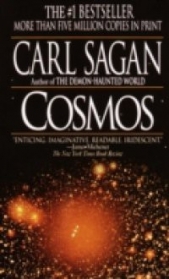The Schopenhauer Cure

The Schopenhauer Cure читать книгу онлайн
Внимание! Книга может содержать контент только для совершеннолетних. Для несовершеннолетних чтение данного контента СТРОГО ЗАПРЕЩЕНО! Если в книге присутствует наличие пропаганды ЛГБТ и другого, запрещенного контента - просьба написать на почту [email protected] для удаления материала
he was to devote more attention to the arts, and particularly to
music, than any other philosopher.
And sex? He left no doubt about his belief that sexual
feelings played a crucial role in human behavior. Here, again, he
was an intrepid pioneer: no prior philosopher had the insight (or
the courage) to write about the seminal importance of sex to our
internal life.
And religion? Schopenhauer was the first major philosopher
to construct his thought upon an atheistic foundation. He explicitly
and vehemently denied the supernatural, arguing instead that we
live entirely in space and time and that all nonmaterial entities are
false and unnecessary constructs. Though many others, Hobbes,
Hume, even Kant, may have had agnostic leanings, none dared to
be explicit about their nonbelief. For one thing, they were
dependent for their livelihood upon the states and universities
employing them and, hence, forbidden to express any antireligious
sentiments. Arthur was never employed nor needed to be and was
free to write as he wished. For precisely the same reason, Spinoza,
a century and a half earlier, refused offers of exalted university
positions, remaining instead a grinder of lenses.
And the conclusions that Schopenhauer reached from his
inside knowledge of the body? That there is in us, and in all of
nature, a relentless, insatiable, primal life force which he
termedwill. «Every place we look in life,” he wrote, «we see
striving that represents the kernel and вЂin–itself` of everything.»
What is suffering? It is «hindrance to this striving by an obstacle
placed in the path between the will and its goal.» What is
happiness, well–being? It is «attainment of the goal.»
We want, we want, we want, we want. There are ten needs
waiting in the wings of the unconscious for every one that reaches
awareness. The will drives us relentlessly because, once a need is
satisfied, it is soon replaced by another need and another and
another throughout our life.
Schopenhauer sometimes invokes the myth of the wheel of
Ixion or the myth of Tantalus to describe the dilemma of human
existence. Ixion was a king who was disloyal to Zeus and punished
by being bound to a fiery wheel which revolved in perpetuity.
Tantalus, who dared to defy Zeus, was punished for his hubris by
being eternally tempted but never satisfied. Human life,
Schopenhauer thought, eternally revolves around an axle of need
followed by satiation. Are we contented by the satiation? Alas,
only briefly. Almost immediately boredom sets in, and once again
we are propelled into motion, this time to escape from the terrors
of boredom.
Work, worry, toil and trouble are certainly the lot of almost all
throughout their lives. But if all desires were fulfilled as soon
as they arose, how then would people occupy their lives and
spend their time? Suppose the human race were removed to
Utopia where everything grew automatically and pigeons flew
about ready–roasted; where everyone at once found his
sweetheart and had no difficulty in keeping her; then people
would die of boredom or hang themselves; or else they would
fight, throttle, and murder one another and so cause themselves
more suffering than is now laid upon them by nature.
And what is the most terrible thing about boredom? Why do
we rush to dispel it? Because it is a distraction–free state which
soon enough reveals underlying unpalatable truths about
existence—our insignificance, our meaningless existence, our
inexorable progression to deterioration and death.
Hence, what is human life other than an endless cycle of
wanting, satisfaction, boredom, and then wanting again? Is that
true for all life–forms? Worse for humans, says Schopenhauer,
because as intelligence increases, so does the intensity of suffering.
So is anyone ever happy? Can anyone ever be happy? Arthur
does not think so.
In the first place a man never is happy but spends his whole life
in striving after something which he thinks will make him so;
he seldom attains his goal and, when he does it is only to be
disappointed: he is mostly shipwrecked in the end, and comes
into harbor with masts and riggings gone. And then it is all one
whether he has been happy or miserable; for his life was never
anything more than a present moment, always vanishing; and
now it is over.
Life, consisting of an inevitable tragic downward slope, is
not only brutal but entirely capricious.
We are like lambs playing in the field, while the butcher eyes
them and selects first one then another; for in our good days we
do not know what calamity fate at this very moment has in
store for us, sickness, persecution, impoverishment, mutilation,
loss of sight, madness, and death.
Are Arthur Schopenhauer`s pessimistic conclusions about
the human condition so unbearable that he was plunged into
despair? Or was it the other way around? Was it his unhappiness
that caused him to conclude that human life was a sorry affair best
not to have arisen in the first place? Aware of this conundrum,
Arthur often reminded us (and himself) that emotion has the power
to obscure and falsify knowledge: that the whole world assumes a
smiling aspect when we have reason to rejoice, and a dark and
gloomy one when sorrow weighs upon us.
29
_________________________
I have not
written for the
crowd.... I hand
down my work to
the thinking
individuals who
in the course
of time will
appear as rare
exceptions.
They will feel
as I felt, or
as a
shipwrecked
sailor feels on
a desert island
for whom the
trace of a
former fellow
sufferer
affords more
consolation
than do all the
cockatoos and
apes in the
trees.
_________________________
«I`d like to continue where we left off,” said Julius, opening the
next meeting. Speaking stiffly, as though from a prepared text, he
rushed on, «Like most therapists I know, I`m pretty open about
myself to close friends. It`s not easy for me to come up with a
revelation as raw and pristine and right out there on the edge as
those some of you have shared recently. But there is an incident
I`ve revealed only once in my life—and that was years ago to a
very close friend.»
Pam, sitting next to Julius, interrupted. Putting her hand on
his arm, she said, «Whoa, whoa, Julius.You don`t need to do this.
You`ve been bullied into this by Philip, and now, after Tony
exposed his bullshit motives, even Philip has apologized for
requesting it. I, for one, don`t want you to put yourself through
this.»
Others agreed, pointing out that Julius shared his feelings all
the time in the group and that Philip`s I–thou contract was a setup.
Gill added, «Things are getting blurred here. All of us are
here for help. My life`s a mess—you saw that last week. But so far
as I know, Julius,you`re not having problems with intimacy. So
what`s the point?»
«The other week,” Rebecca said, in her clipped precise
speech, «you said I revealed myself in order to give Philip a gift.
That was partially correct—but not the whole truth: now I realize I
also wanted to shield him from Pam`s rage. However, that said, my
point is...whatis my point? My point is that confessing what I did























